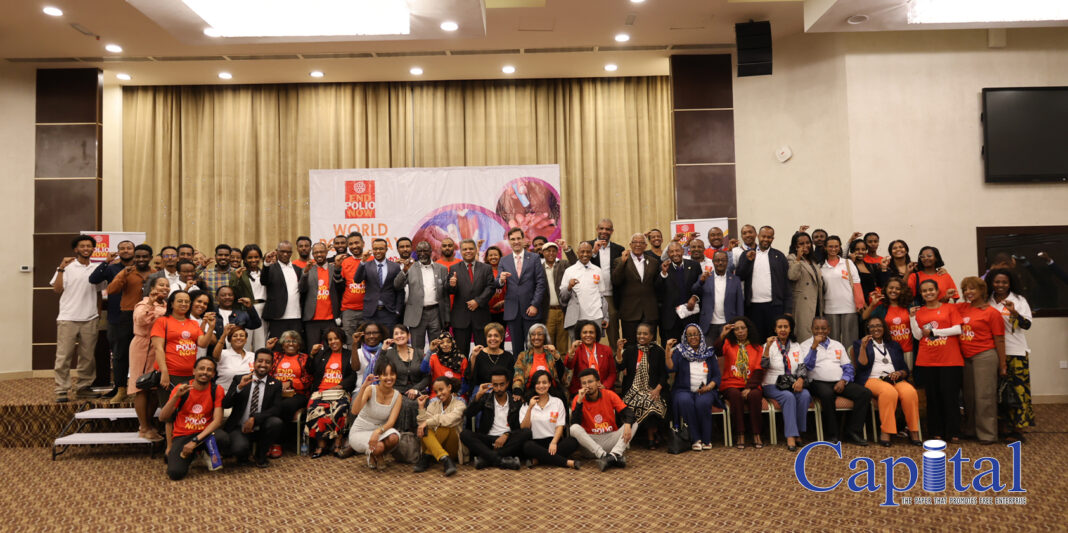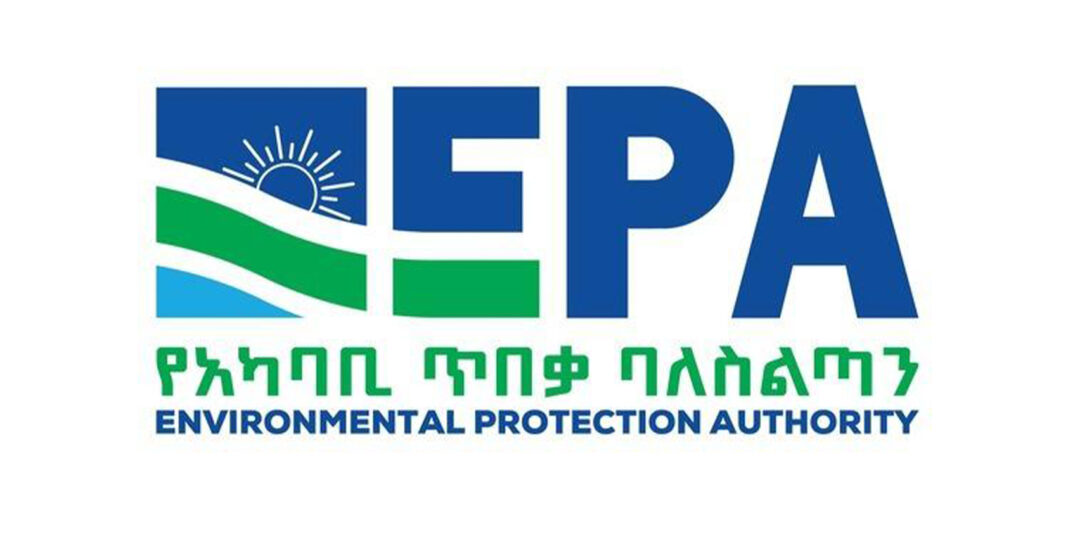On World Polio Day, October 24, 2025, global health partners, government officials, and volunteers reaffirmed their determination to eradicate the final 0.1% of global polio transmission. The renewed commitment comes at a critical time, as Ethiopia battles a surge in circulating vaccine-derived poliovirus (cVDPV) outbreaks — underscoring the ongoing challenges in the decades-long fight against polio.
At a commemoration event held on October 23 at the Elilly International Hotel in Addis Ababa, under the theme “Together We End Polio,” Dr. Aboubacar Kampo, UNICEF Representative in Ethiopia, acknowledged that global focus on polio has waned in many countries. He emphasized that “polio eradication must go hand in hand with routine immunization and strengthening of the overall health system.”
As the world marks World Polio Day, the message from Addis Ababa is clear: the fight against polio is not yet won. The path forward, experts say, demands collective resolve and stronger primary healthcare systems that leverage the existing polio infrastructure to ensure every child grows up healthy and protected.
Dr. Kampo commended the Government of Ethiopia, regional health bureaus, and community leaders for their decisive leadership, while recognizing the continued support of partners in the Global Polio Eradication Initiative (GPEI) — including WHO, UNICEF, Gavi, Rotary International, CDC, and the Gates Foundation — as well as other key stakeholders such as CHAI, JSI, PATH, and Core Group.
Ethiopia’s current polio situation was presented by Dr. Mikias Alayu, Head of the Vaccine-Preventable Disease Surveillance and Response Team at the Ethiopian Public Health Institute (EPHI). He noted that while Ethiopia has been free of wild poliovirus since 2017 — having interrupted local transmission in 1999 and contained its last import-related outbreak in 2014 — the country is now facing outbreaks of vaccine-derived poliovirus type 2 (cVDPV2).
Since joining the global eradication movement in 1996, Ethiopia has implemented multiple strategies to protect children from the virus. Dr. Mikias underscored that “polio is entirely preventable through vaccination,” and urged communities to ensure every child receives their doses through both routine services and supplementary campaigns.
According to EPHI data, 155 cVDPV2 cases have been reported since 2019, including 41 cases in 2025 alone, concentrated mainly in the Amhara, Harari, and Somali regions. These outbreaks are driven by low vaccination coverage and cross-border virus importation.
In response, Ethiopia has mounted a robust vaccination drive. Since 2021, the country has deployed the novel oral polio vaccine type 2 (nOPV2) in multiple rounds. Major campaigns have reached over 17 million children in October 2021 and 18 million in April 2022, while a recent coordinated effort across 22 zones in seven regions immunized 8.8 million children.
These efforts are increasingly integrated with broader health initiatives. In the process, health workers identified and vaccinated over 198,000 “zero-dose” (previously unvaccinated) children and 77,000 under-immunized children — strengthening protection not just against polio but also against other vaccine-preventable diseases.
Teguest Yilma, Chair of the Rotary National PolioPlus Committee (NPPC), described World Polio Day as “a time that unites us in purpose, renews our commitment, and reminds us of the power of collaboration in serving humanity.” She praised the 99.9% global reduction in polio cases since the launch of GPEI, calling it a “monumental public health achievement.”
However, she cautioned that the fight is not over. “The fact that Afghanistan and Pakistan continue to report wild poliovirus cases — alongside outbreaks of other vaccine-preventable diseases — reminds us that vulnerabilities remain,” she said.
Teguest reaffirmed Rotary International’s unwavering commitment, noting that members have contributed over USD 2.7 billion and countless volunteer hours toward polio eradication. “We made a promise to the children of the world — that no child will ever again suffer the devastating effects of polio,” she said. “Polio is not an unstoppable disease. It can, and it will, be defeated.”
The World Health Organization (WHO) echoed this optimism, emphasizing that no child should be left behind. African countries are expected to make substantial progress toward eradication by 2025 through enhanced cross-border coordination, expanded surveillance, and the use of digital tools.
Between January and October 2025, 15 African nations vaccinated nearly 200 million children in synchronized campaigns across hotspots such as the Horn of Africa and the Lake Chad Basin. These efforts have reduced the number of countries experiencing active polio outbreaks from 24 in 2024 to 14 in 2025, with overall virus detections declining by 54%. Notably, Madagascar declared the end of its type 1 polio outbreak in May 2025.
While 98% of African countries now maintain strong surveillance systems, experts warn that declining routine immunization coverage and growing vaccine hesitancy remain major threats to the goal of a polio-free world.
As Ethiopia and its partners press forward, one message resounds across the global health community: the hardest mile is the last one — but together, it can be won.







